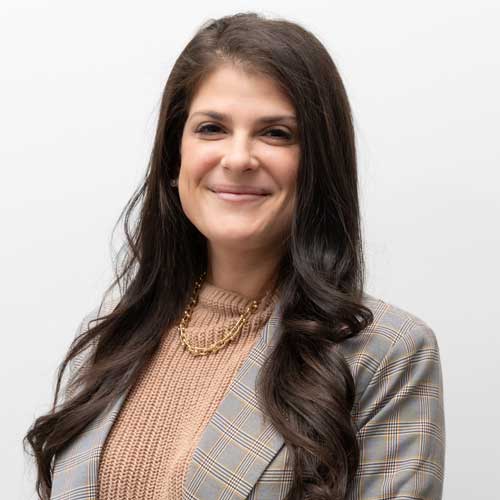Detoxification is the first crucial step in overcoming addiction, yet the process can be physically and mentally challenging. When it comes to detoxing safely, Massachusetts detox centers, like Berkshire Mountain Health, provide a medically supervised environment designed to ease the discomfort and risks of withdrawal. Here’s a closer look at how detox centers in Massachusetts prioritize safety, comfort, and effective recovery.
The Importance of Medical Supervision During Detox
Detoxification involves removing toxins from the body, often accompanied by withdrawal symptoms that can range from uncomfortable to life-threatening. Medical detox is a critical aspect of recovery, as it provides constant supervision by trained healthcare professionals to manage these symptoms. At Berkshire Mountain Health, detox is supervised 24/7 by a team of doctors, nurses, and addiction specialists who ensure the patient’s safety throughout the process.
Why Medical Supervision is Essential:
- Safety: Withdrawal from substances like alcohol or opioids can be dangerous. Medical supervision allows for immediate intervention if complications arise.
- Comfort: The discomfort of withdrawal symptoms is often alleviated through medications and therapies prescribed by professionals, ensuring patients are as comfortable as possible.
- Effective Recovery: A medically supervised detox provides a foundation for long-term recovery by preventing relapse and managing physical symptoms, giving patients a better chance for success.
Structured Detox Programs for Long-Term Success
One of the key reasons why detoxification at Berkshire Mountain Health is successful is due to the structured programs that are implemented throughout the process. The facility’s detox programs are designed not only to remove substances from the body but also to support the individual’s emotional and mental healing. This structured approach is critical for preventing relapse and ensuring that each patient is well-equipped for long-term sobriety.
Key Components of a Structured Detox Program:
- Personalized Treatment Plans: At Berkshire Mountain Health, each patient receives an individualized treatment plan that addresses their specific detox needs.
- Therapeutic Support: In addition to medical care, therapeutic support such as individual and group therapy sessions is provided to help patients cope with the psychological aspects of addiction.
- Aftercare Planning: Detox is just the first step. Aftercare programs are put in place to help patients maintain their recovery and avoid relapse after they leave the detox center.
Ensuring Comfort Through Every Stage of Detox
While detox is essential, ensuring comfort throughout the process is equally important. At Berkshire Mountain Health, comfort is prioritized by offering an environment that supports both the physical and emotional aspects of detoxification.
Strategies to Enhance Comfort During Detox:
- Medication-Assisted Detox: For many patients, medication can significantly reduce withdrawal symptoms. Berkshire Mountain Health uses safe and effective medications to ease the detox process and minimize discomfort.
- Holistic Therapies: In addition to traditional medical care, holistic therapies such as meditation, yoga, and mindfulness are incorporated into the treatment plan to help patients manage stress and anxiety.
- Supportive Environment: The serene and private location of Berkshire Mountain Health provides a peaceful retreat where patients can focus on healing without the distractions of everyday life.
The Role of Inpatient Medical Detox in Successful Recovery
Inpatient detox is often the best option for individuals who are struggling with severe addiction, as it provides around-the-clock care and the ability to address any complications that may arise during withdrawal. Berkshire Mountain Health’s inpatient medical detox program is designed to give patients the best chance for successful recovery.
Benefits of Inpatient Detox:
- Constant Medical Supervision: With staff available 24/7, any sudden medical issues or complications can be addressed immediately.
- Safe Withdrawal Management: Inpatient detox helps to prevent the dangers associated with unsupervised detox, such as relapse or severe withdrawal symptoms.
- Comprehensive Support: Beyond just detox, patients receive the therapeutic support needed to heal emotionally and mentally, ensuring they are prepared for the next steps in recovery.
Start Your Journey to Recovery Today
Detoxing under the care of medical professionals at Berkshire Mountain Health ensures that your recovery journey begins with the support, safety, and comfort you deserve. If you or a loved one is struggling with addiction, don’t wait to take the first step toward healing.
Contact Berkshire Mountain Health today to learn more about our medically supervised detox program and how we can help you start your recovery in a safe, supportive environment.
Sources:
[1] https://nida.nih.gov/publications/drugfacts/understanding-drug-use-addiction
[2] https://www.ncbi.nlm.nih.gov/books/NBK310652/

Alexis earned both a B.S. in Psychology and a B.S. in Family and Child Sciences from Florida State University and an M.A. in Marriage and Family Therapy from the University of San Diego. She holds licenses in Marriage and Family Therapy in Florida, Connecticut, and Massachusetts and is also a member of the American Association for Marriage and Family Therapy (AAMFT).
Alexis works with families, couples, children, and groups and also has a sub-specialty in addiction and recovery. She utilizes an integrated, systemic approach to counseling; empowering people to define what is not working for them in their lives and to discover the possibilities for making life work. In doing this, clients are guided towards identifying their strengths, accessing their resources, tapping into their potential for success, and taking action toward achieving their desired goals.
Alexis also has extensive experience in the administration of behavioral health organizations. She has developed, built, and supervised several facilities encompassing all levels of care while leading them through state licensing and The Joint Commission accreditation process.



